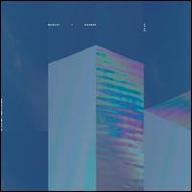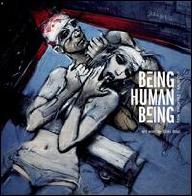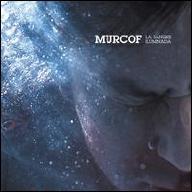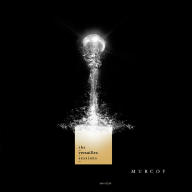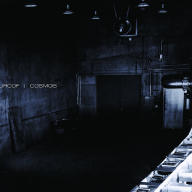Fernando Corona was born in Tijuana, close to the United States border, and learned English in San Diego before relocating to the coastal city of Ensenada. His earliest exposure to electronic music was through hearing artists like Jean-Michel Jarre, Isao Tomita, and Jorge Reyes, and he bought his first keyboard when he was 15. At the end of the 1980s, he began attending clubs in Tijuana that played industrial, synth pop, and acid house, and he formed a short-lived group called Vortex with some of his friends. He also played in a band named Sonios, which evolved from indie pop to a more experimental sound influenced by prog rock and fusion. During the mid-'90s, he participated in experimental projects heavily influenced by 20th century composers such as Xenakis and Ligeti, and he began creating electro-acoustic music, digitally processing samples of classical music and using feedback effects. In 1998, he started a solo project called Terrestre that blended glitchy electronic music with samples of tambora, danzón, and salsa records. He became a member of the Nortec Collective and appeared on their 2001 release The Tijuana Sessions, Vol. 1, which received worldwide acclaim.
While continuing to make music as Terrestre, Corona started another project called Murcof. Far from Nortec Collective's more playful, club-friendly work, his early Murcof recordings featured precise, glitchy beats and manipulated samples of compositions by Morton Feldman and Arvo Pärt. His 2002 debut EP, Monotónu, appeared on Sutekh's Context imprint. Having left Nortec, he co-founded Static Discos and released the full-length Martes, which was released internationally by Leaf. The 2004 release Utopía included remixes by artists such as Deathprod, Fax, and Colleen as well as both sides of the previous year's Ulysses 12" and additional material. After issuing an album as Terrestre (Secondary Inspection), Corona composed the Murcof album Remembranza in order to cope with the loss of his mother. Incorporating recordings of classical instruments rather than samples, the album was more complex than his previous, more minimalist records.
Corona moved to Barcelona in 2006, the same year he began performing in a trio with tabla player Talvin Singh and trumpeter Erik Truffaz. Murcof's Cosmos, a dark ambient album influenced by Ligeti, appeared in 2007. Breaking from the pattern of successive albums whose titles correspond to letters of his moniker, Murcof released Mexico (with Truffaz) and The Versailles Sessions, a set of pieces commissioned for an installation that were performed on Baroque instruments. Corona's soundtrack for the film La Sangre Iluminada was released in 2009. He remixed Powerplant's recording of Gabriel Prokofiev's piece Import/Export, and made appearances at festivals such as Berlin Atonal and Denovali Swingfest.
Murcof's collaboration with Philippe Petit, First Chapter, appeared in 2013. He collaborated with Truffaz on the 2014 album Being Human Being, and released the soundtrack to another film, Patrick Bernatchez's Lost in Time. Murcof and pianist Vanessa Wagner recorded the album Statea, containing pieces by John Cage, Aphex Twin, Erik Satie, and others. It was issued by Infiné in 2016, along with three EPs containing remixes. Murcof returned in 2021 with The Alias Sessions, which included material composed for dance performances by Geneva-based company Alias. ~ Paul Simpson, Rovi
|
1
|
|
Human Being |
|
2
|
|
Memoria |
|
3
|
|
rostro |



